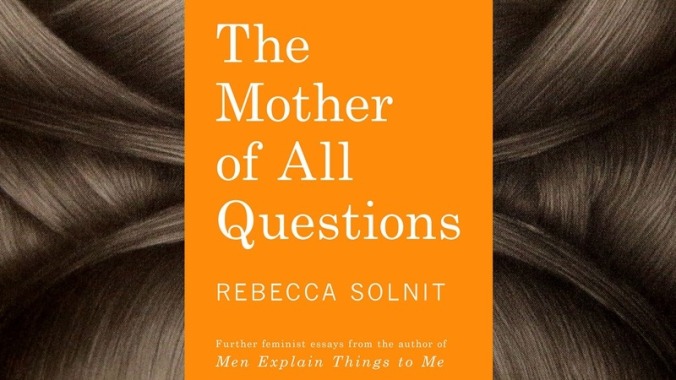Read a crucial set of essays from the progenitor of “mansplaining”

Rebecca Solnit, an author long esteemed for her thoughtfulness and variety of interests, jumped to the kind of weird prominence made by the internet when her essay “Men Explain Things To Me” led to the coinage of “mansplaining.” When the essay was published in a collection under the same name, she included an update that reflected on the word and its wide usage, noting she has mixed feelings about it and rarely uses it. But the birth of that word is a showcase for the sort of work that Solnit does so well. In her essays, she captures a feeling or a behavior or a practice that many, many women feel but can’t always articulate. With “Men Explain Things To Me” and, eventually, mansplaining, Solnit put in (beautiful) prose what was only a vague, yet pernicious, sense of degradation women so often feel at the hands of men who talk over us, assume expertise, and explain to us subjects that we are actually the authorities on. By identifying and lucidly writing on these experiences, Solnit does the invaluable work of solidifying something understood but unnamed into something real and legitimate.
So it is with Solnit’s new book of collected essays, The Mother Of All Questions. A selection of her work from 2014 to 2016, the essays all have to do with feminism as it stands today. Solnit traces feminism—and history at large—to deftly bring us to our current moment, a time when the word “feminism” is more widely used than ever yet patriarchic forces show no sign of slowing down. The first essay, the title of which is given to the book, addresses that exhausted, timeless question of motherhood. If that feels like a subject that’s been written about to death in the feminist blogosphere, don’t be fooled: Solnit’s brief essay is more thoughtful, probing, and powerful than the majority of content on the subject. Building her piece around Virginia Woolf, what constitutes happiness, and her own experiences on the topic, Solnit arranges “the mother question” into a piece of writing as profound as the question is tired.

 Keep scrolling for more great stories.
Keep scrolling for more great stories.